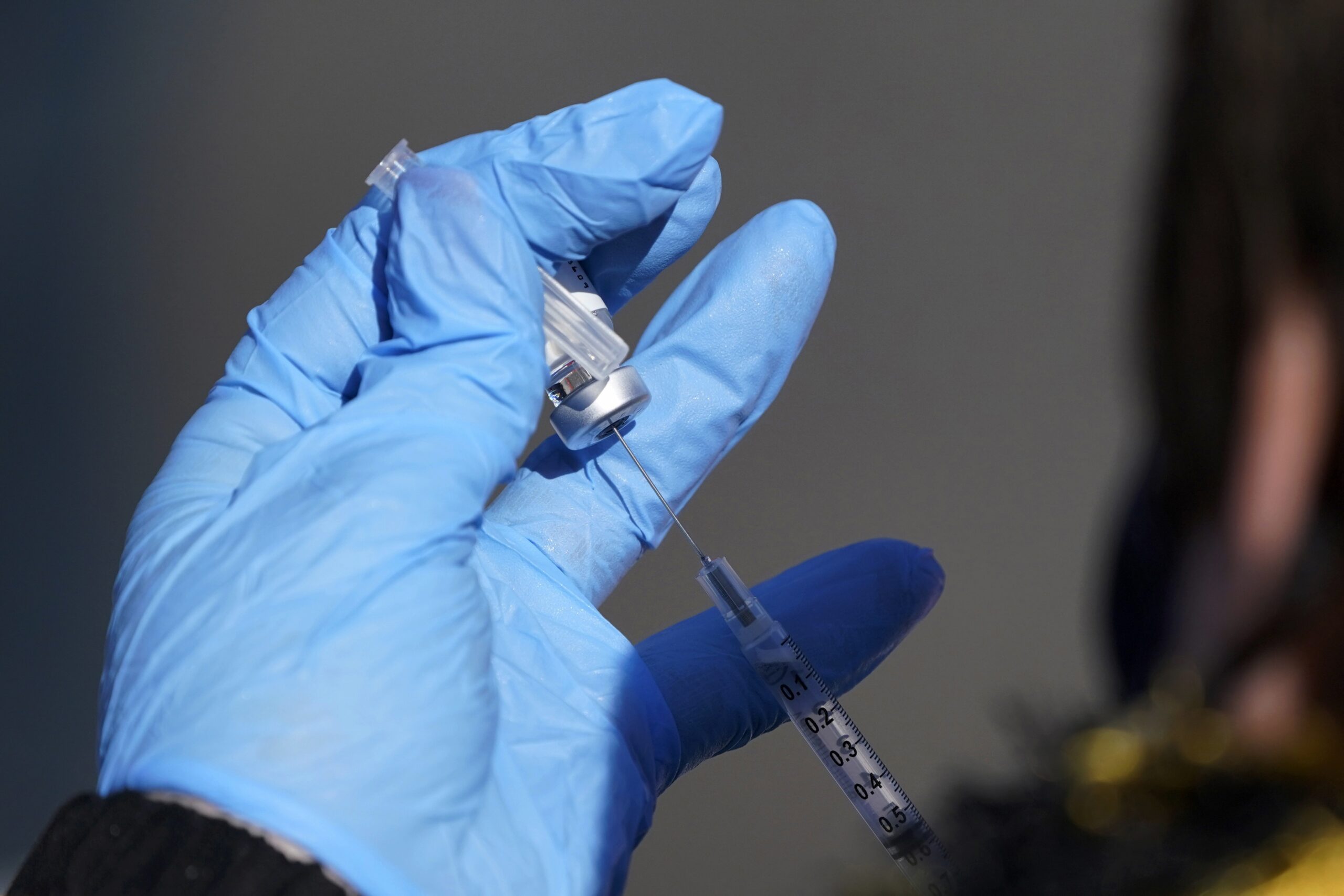Public health leaders across Wisconsin are continuing to encourage all eligible people to be vaccinated against COVID-19.
But Kelli Engen, public health administrator for St. Croix County, said she has heard anecdotally that some people who have had the disease and recovered from it don’t think they need to get the vaccine.
“I’m not really sure where that message has come from,” Engen said. “We just need to stay the course and really promote vaccines for our eligible populations. And definitely people who have recovered from COVID are an eligible population to be vaccinated.”
News with a little more humanity
WPR’s “Wisconsin Today” newsletter keeps you connected to the state you love without feeling overwhelmed. No paywall. No agenda. No corporate filter.
Engen said the message from health care providers and public health agencies like the Centers for Disease Control and Prevention has consistently been that everyone should be vaccinated, regardless of their infection history.
Peter Wilker is an associate professor at the University of Wisconsin-La Crosse who studies immunology. He said it’s very likely that people who have recovered from COVID-19 have generated some protective immunity against the virus.
But Wilker said there hasn’t been enough research to know whether that immune response is enough to prevent reinfection or how long it will last.
“In contrast, we know that the vaccines elicit a very robust immune response that has been very effective at protecting people for at least six months,” Wilker said. “So there’s just a lot more unknowns about the nature of protective immunity following COVID-19 infection as compared to the wealth of data we have supporting the efficacy of the COVID-19 vaccines.”
Even if someone does have immunity from a prior infection, Wilker said the vaccine will essentially serve as a booster, strengthening the immune response they already have.
Wilker said people who have recovered from COVID-19 infections likely don’t pose a serious risk to furthering community spread. But he said having that population vaccinated would help the community reach a greater level of immunity to the virus.
As public health agencies continue to loosen mask requirements and other restrictions for fully vaccinated individuals, Engen said that people who have recovered from COVID-19 but have not gotten the vaccine do not qualify for the new freedoms.
“Overwhelmingly, our public health message is if you are not vaccinated you should continue to wear masks and avoid large crowds if you are sick,” Engen said. “That needs to stay the course for those who choose not to get vaccinated or can’t get vaccinated. Especially in St. Croix County, where we have really high case activity levels still. We have high test positivity rates, so we still have a lot of disease in our community.”
She said continuing health precautions and vaccinating all eligible individuals is the best way to protect people who are most vulnerable to the disease or who are still ineligible for the vaccine.
Wisconsin Public Radio, © Copyright 2025, Board of Regents of the University of Wisconsin System and Wisconsin Educational Communications Board.






